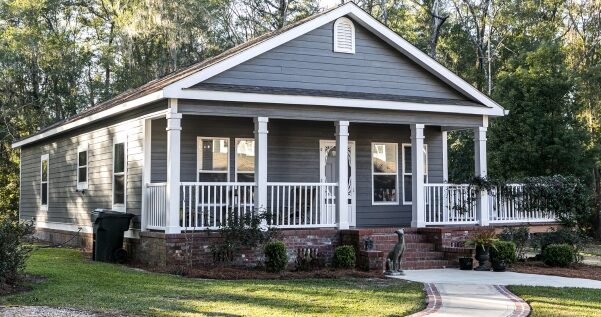Foreclosures and bank-owned properties often present good investment opportunities for buyers, but they also present certain risks. Before investing in a bank-owned home in Illinois, a Chicago real estate lawyer should explain the risks, advantages, and disadvantages of purchasing these types of properties.
Table of Contents
ToggleWhat is a Bank-Owned Home?
When a home is in the pre-foreclosure or foreclosure stage, a homeowner still has an opportunity to bring the loan current by paying the defaulted amount that they owe to the bank within a certain time period. If the homeowner fails to bring the loan current, the home moves to the auction stage, where the bank forecloses on the property and auctions it to the highest bidder. If the home is not sold at the auction, it officially becomes a bank-owned property, also referred to as real estate owned properties (REOs).
Advantages of Buying Bank-Owned Properties
- Discounted Prices – One of the biggest advantages of buying a bank-owned home is discounted prices. Although banks don’t typically offer steals, they do price bank-owned homes at below market value compared to similar homes in the area.
- No Outstanding Taxes – Bank-owned homes often have outstanding real estate property taxes attached, but banks often waive them to entice buyers. In Illinois, a Chicago real estate lawyer can run a title search to check for outstanding property taxes and liens on the property.
- Dealing Directly with the Bank – When purchasing a bank-owned home, buyers deal directly with the bank instead of a homeowner. Typically, REOs are vacant, and banks have no emotional attachment to the home.
Although bank-owned homes offer advantages to buyers, they do present risks. Typically, REOs are distressed properties where owners could not afford the mortgage payments. It’s likely that these properties have not been well maintained, and they may need major repairs before a buyer can move in. However, a buyer can request to view and inspect a bank-owned home before closing on the sale.
Tips for Buying a Bank-Owned Home
Research the Property
It’s important to research a bank-owned home to make sure it meets personal needs before making an offer. By researching public records and property history, a buyer can often find out how much money was owed on the home before the bank took over, and current market value as compared to homes in the same area. With Illinois properties, a Chicago real estate lawyer can obtain helpful information on the property that may impact the sale.
Contact the Listing Agent
If a buyer is interested in making an offer on a bank-owned home, it’s best to contact the listing agent directly for faster results. Although most real estate agents can handle offers, they aren’t always experienced in dealing with REOs. Typically, banks work with a specific group of agents they trust, so establishing a relationship with REO listing agents is likely to bring more positive results.
Gather as Much Cash as Possible
Buyers with cash are more likely to be given first option on the sale. Cash provides more buying power and creates an opportunity to negotiate a better deal. Many bank-owned homes are purchased by investors who pay cash, though they are not always the highest bidder when there are multiple offers. Banks want to close deals as soon as possible, so they recover some of their capital.
Act Quickly
Bank-owned home purchases usually move quickly, so an interested buyer needs to act quickly with an offer. Buyers who are interested in a particular property should set up a time to view the property and make an offer as soon as possible after the viewing. Although some buyers make offers on bank-owned homes without seeing the property, this can present a substantial investment risk if the property needs major repairs or remodeling.
Be Patient
Because bank-owned homes offer advantages to buyers, homes often generate multiple offers by multiple buyers. Unless the buyer is paying cash, banks look at a buyer’s financial history and credit. If the person who submits the highest bid has bad credit or can’t secure financing, the property is usually put back on the market. A Chicago real estate lawyer can provide legal advice on Illinois properties with multiple offers.
Prepare for a Fast Closing
Once the bank has accepted an offer, escrow begins. Normal escrow periods on a traditional home loan range between 30 and 90 days, but bank-owned escrows are often 30 days or less since banks want to get rid of properties as quickly as possible to recoup their investment.
NOTE: Typically REOs are sold “as-is.” Banks are not likely to cover any repair costs, but it may be possible to negotiate with the bank on closing fees. In Illinois sales, a Chicago real estate lawyer can often negotiate with the bank to get the best deal for the buyer.


